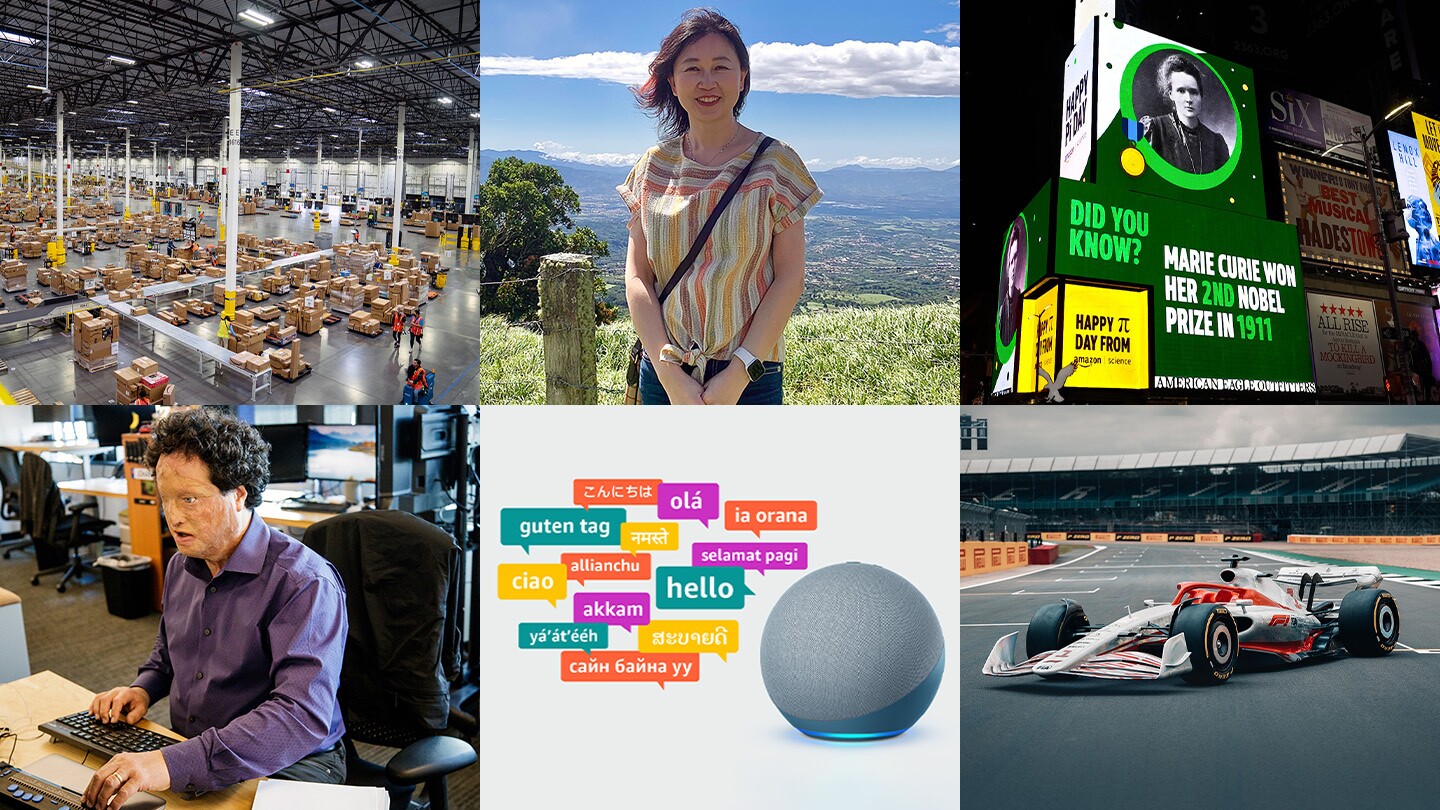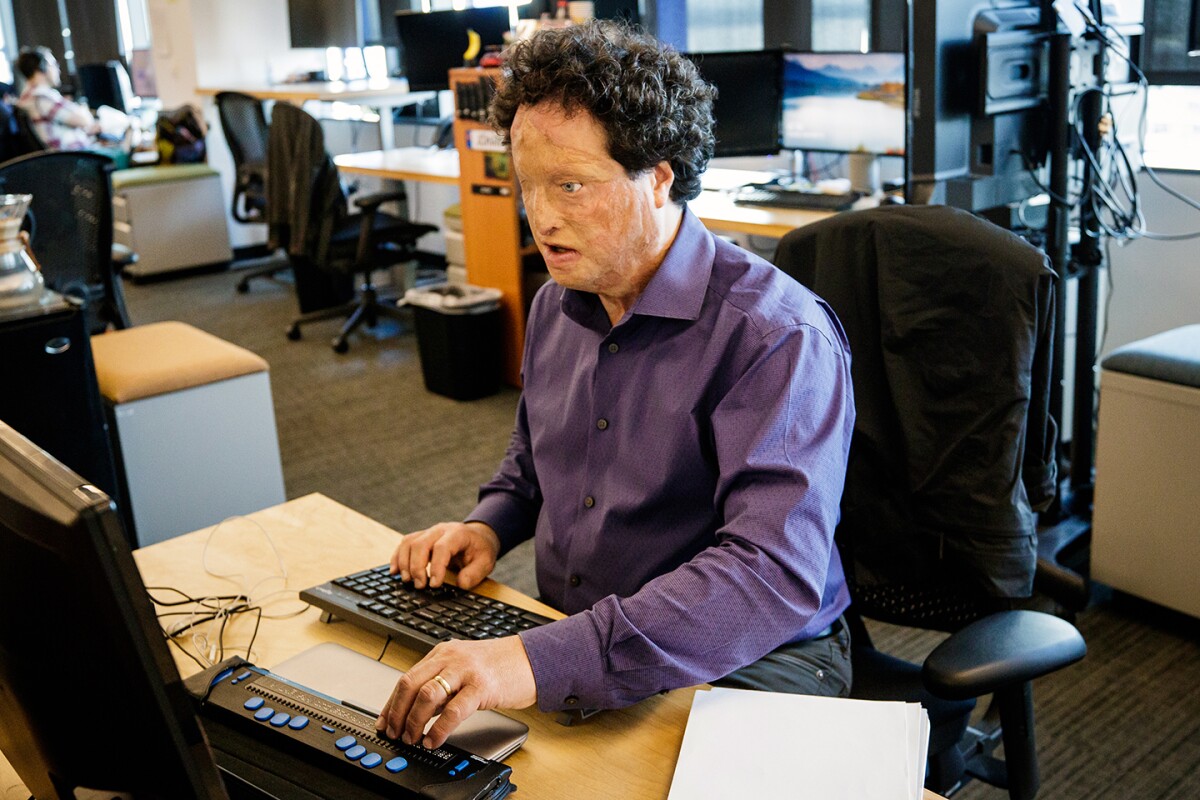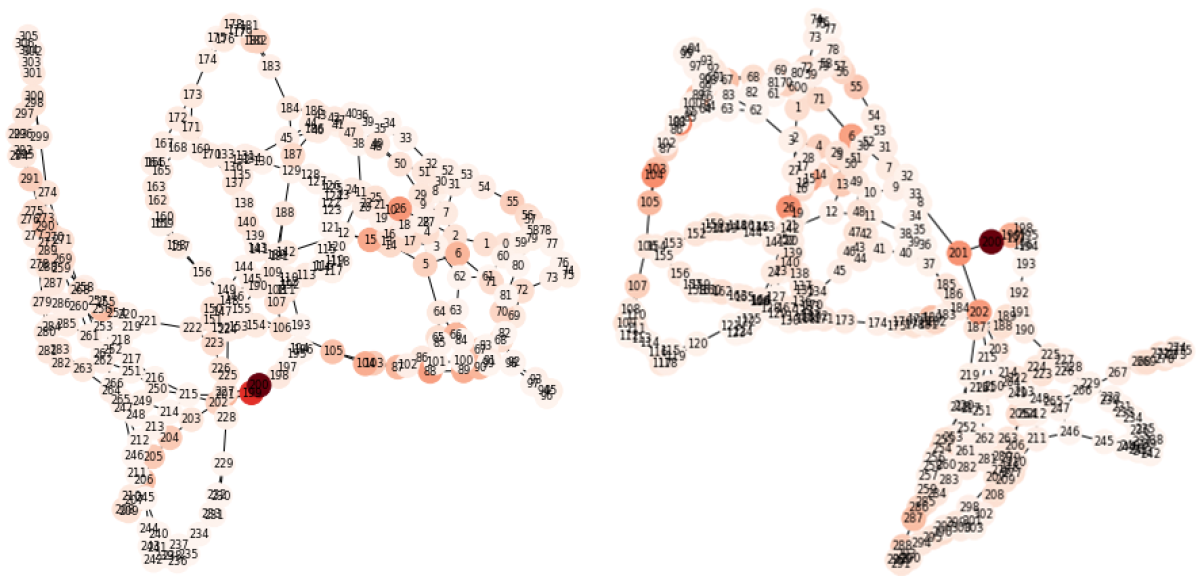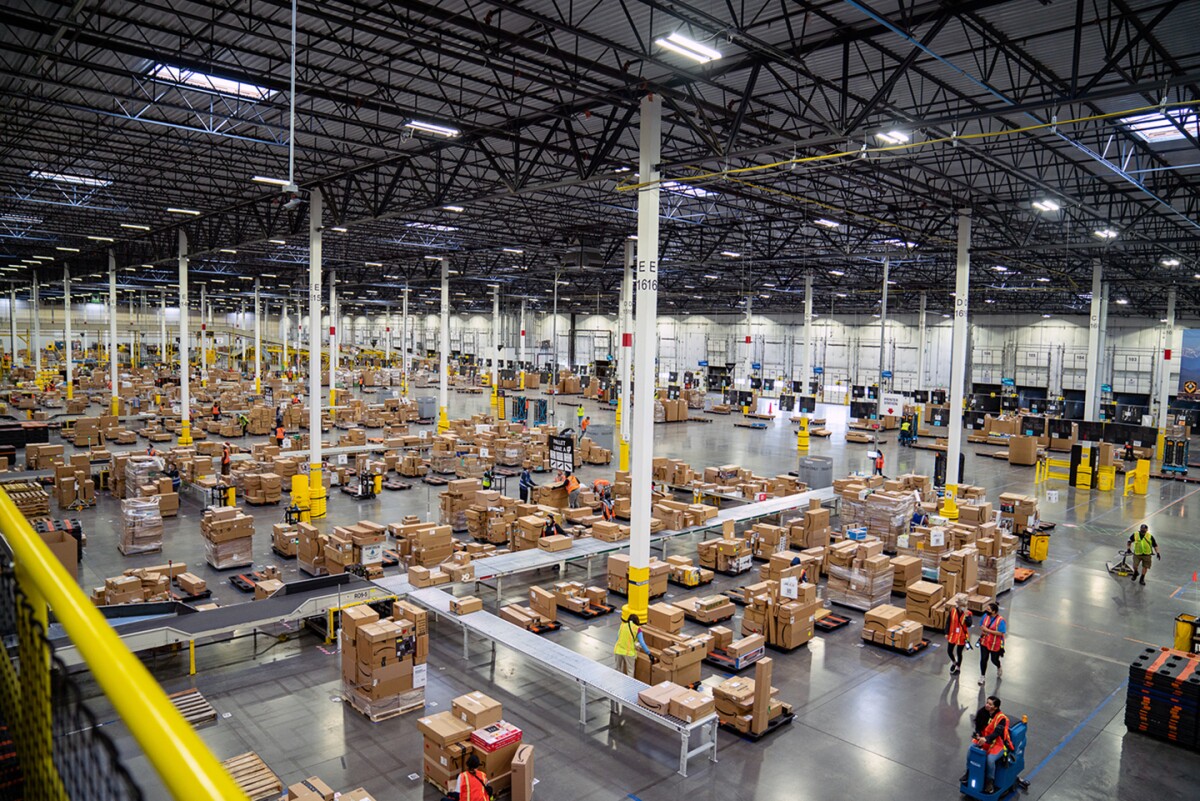
Josh Miele, an Amazon principal accessibility researcher, was selected a 2021 MacArthur Foundation Fellow. He has spent his career developing tools to make the world more accessible for people who are blind and visually impaired. Meg Coyle / AmazonIn September 2021, when Josh Miele, an Amazon principal accessibility researcher, got a text from someone at the MacArthur Foundation requesting a phone call, his heart leapt. For anyone in the arts and sciences, a MacArthur Fellowship, known as the “genius” grant, is akin to winning the lottery.
For Miele, who is blind and has spent his career developing tools to make the world more accessible for people who are blind and visually impaired, a MacArthur grant had long been a fantastical dream. Learn how he has merged a lifelong passion for science with a mission to make the world more accessible for people with disabilities.

Belinda Zeng is the head of applied science and engineering at Amazon Search Science and AI. Courtesy of Belinda ZengBelinda Zeng, head of applied science and engineering at Amazon Search Science and AI, has participated in hundreds of interviews for science roles across the company.
Earlier this year, she shared her thoughts on what it takes to succeed as a scientist at Amazon — including the lessons she learned as a Bar Raiser: experienced interviewers who help to raise the Amazon recruiting standard.
Learn what the hiring team looks for and which three Leadership Principles stand out for scientists.

The MASSIVE dataset is a step toward the creation of multilingual natural-language-understanding models that can generalize easily to new languages. Amazon researchers released a new dataset called MASSIVE, which is composed of one million labeled utterances spanning 51 languages, along with open-source code.
The release provides examples of how to perform massively multilingual NLU modeling and allows practitioners to re-create baseline results for intent classification and slot filling.

The F1 engineering team collaborated with AWS to explore the science of how cars interact when racing in close proximity. F1When the 2022 FORMULA 1 (F1) racing season started in March, teams will took to the track with newly designed cars engineered to give fans — and drivers — more of the wheel-to-wheel action they’ve been seeking.
Learn how the F1 engineering team collaborated with AWS to develop new design specifications to help make races more competitive.

Examples of graph representations of proteins. At Amazon Web Services, the use of machine learning to make the information encoded in graphs more useful to customers has been a major research focus.
In this post, AWS researchers showcased a variety of graph ML applications that customers have developed in collaboration with AWS scientists, from malicious-account detection and automated document processing to knowledge-graph-assisted drug discovery and protein property prediction.

The quantile function is simply the inverse of the cumulative distribution function (if it exists). Its graph can be produced by flipping the cumulative distribution function's graph over. The quantile function is a mathematical function that takes a quantile (a percentage of a distribution, from 0 to 1) as input and outputs the value of a variable. It can answer questions like, “If I want to guarantee that 95% of my customers receive their orders within 24 hours, how much inventory do I need to keep on hand?” As such, the quantile function is commonly used in the context of forecasting questions.
In practical cases, however, we rarely have a tidy formula for computing the quantile function. Instead, statisticians usually use regression analysis to approximate it for a single quantile level at a time. That means that if you decide you want to compute it for a different quantile, you have to build a new regression model — which, today, often means retraining a neural network.
In a pair of papers presented at this year’s International Conference on Artificial Intelligence and Statistics (AISTATS), Amazon researchers describe an approach to learning an approximation of the entire quantile function at once, rather than simply approximating it for each quantile level.

Amazon's scale makes picking the right package for each product a challenge. Fortunately, machine learning approaches — particularly deep learning — thrive on big data and massive scale. These tools have helped Amazon reduce per-shipment packaging weight by 36% and eliminate more than a million tons of packaging. Finding the right amount of packaging to ship an item can be challenging — and at Amazon, an ever-changing catalog of hundreds of millions of products makes it an ongoing challenge.
Fortunately, machine learning approaches — particularly deep learning — thrive on big data and massive scale, and a pioneering combination of natural language processing and computer vision is enabling Amazon to hone in on using the right amount of packaging. Learn how these tools have helped Amazon drive change over the past six years, reducing per-shipment packaging weight by 36% and eliminating more than a million tons of packaging, equivalent to more than 2 billion shipping boxes.

The initial version of Amazon Prime Video's block corruption detector uses a residual neural network to produce a map indicating the probability of corruption at particular image locations, binarizes that map, and computes the ratio between the corrupted area and the total image area. Streaming video can suffer from defects introduced during recording, encoding, packaging, or transmission, so most subscription video services — such as Amazon Prime Video — continually assess the quality of the content they stream.
Manual content review — known as eyes-on-glass testing — doesn’t scale well, and it presents its own challenges, such as variance in reviewers’ perceptions of quality. More common in the industry is the use of digital signal processing to detect anomalies in the video signal that frequently correlate with defects.
Three years ago, the Video Quality Analysis (VQA) group in Prime Video started using machine learning to identify defects in captured content from devices, such as gaming consoles, TVs, and set-top boxes, to validate new application releases or offline changes to encoding profiles. Learn how they've been applying the same techniques to problems such as real-time quality monitoring of thousands of channels and live events and to analyzing new catalogue content at scale.

Since 2018, Amazon Music customers in the US have been able to converse with the Alexa voice assistant. Progress in machine learning has recently made the Alexa music recommender experience even more successful and satisfying for customers. Since 2018, Amazon Music customers in the US who aren’t sure what to choose have been able to converse with the Alexa voice assistant. The idea is that Alexa gathers the crucial missing information to help the customer arrive at the right recommendation for that moment. The technical complexity of this challenge is hard to overstate, but progress in machine learning (ML) at Amazon has recently made the Alexa music recommender experience even more successful and satisfying for customers.
Learn how the Amazon Music Conversations team is using pioneering machine learning to make Alexa's discernment better than ever.
- Amazon Science celebrates Pi Day
To mark Pi Day this year, Amazon Science utilized a Times Square billboard to honor scientists, engineers, and mathematicians past, present, and future.
The billboard display ran from midnight to 8 a.m. and again — for 3 hours and 14 minutes — from 3:14 p.m. to 6:28 p.m. The display began by honoring Marie Curie, the first woman to be awarded a Nobel Prize in 1903 for her contributions to physics. It was Curie who once famously said, “Nothing in life is to be feared, it is only to be understood. Now is the time to understand more, so that we may fear less.”



























